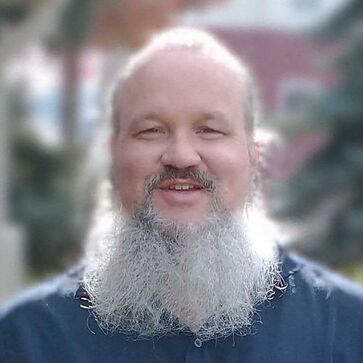|
Songs of unity, peace, and diversity this Sunday morning.
At the 9:00 a.m. service, an eclectic display of wisdom and sounds from such diverse sources as Guatemala, jazz, and Buddhist texts will be shared. Vocalist/cellist Lucas Jackson, resident ukulelist Stuart Yoshida, and bassist Peter Strening join us for early morning worship. The organ speaks colorfully with two works showcasing the varied timbres of the sanctuary organ. "Lied to the Flowers" from Belgian composer Flor Peeters is an ode to the beauty of nature and its wonderful living art. The collage of color beautifully showcased by flowers is represented with an imaginative use of registration from the organ. A playful toccata ("Toccata giocosa") from Welsh composer William Mathias employs an ever-shifting change of stops to highlight the sectional nature of this work. The Chancel Choir tells us the good news that the water is just fine, with God's guidance, in a rousing and quirky setting of the spiritual "Wade in the Water" by Bruce Trinkley. After the 11:00 service, learn more about the organ (the "King of Instruments" according to Mozart) in an Organ Encounter with your truly! It will be a casual show-n-tell presentation with Q&A from 12:15 - 1:00 p.m. Hope to see you there!
0 Comments
 Image by Gordon Johnson from Pixabay Image by Gordon Johnson from Pixabay We can experience transcendence through music—a brush with another spiritual realm. One person may feel exhilaration at a high decibel heavy metal show while another is uplifted by the sweet melancholy of a band like The Cure. The ancient melodies of Gregorian Chant can bring the faithful to tears while the roar of a pipe organ leading a congregation in a majestic Germanic hymn could be heard as glorious. The styles and modes of transmission can be so varied and seemingly contradictory in intent. But they are unified by our individual spirits looking upward. Engaged. Stirred. Songs of Unity this Sunday, then.  By lumaxart - 3D Full Spectrum Unity Holding Hands Concept, CC BY-SA 2.0, https://commons.wikimedia.org/w/index.php?curid=3590833 By lumaxart - 3D Full Spectrum Unity Holding Hands Concept, CC BY-SA 2.0, https://commons.wikimedia.org/w/index.php?curid=3590833 Following the Light in this Epiphany season and New Year—in unity and hope. Celebrated American composer Ned Rorem wrote for the organ sporadically throughout his decades-long career with several works becoming staples of the repertoire. One such collection is A Quaker Reader (1976), inspired by the ethos of his Quaker upbringing. As Rorem so thoughtfully describes: With the present suite my intention has been to meld, finally and practically, my nominal religion with my craft. Since no Song is used—no actual musicalizing of words—each piece is headed with an epigraph from Friends' writings, many of which, in their urge toward pacifism as solution, extol absolute quiet and absolute light. The music represents a blaze of silence. From the dying words of one James Naylor in 1660 comes the title of the Prelude this Sunday morning: "There is a spirit that delights to do no evil..." This fourth movement of the eleven part suite bestows upon the listener a sense of calm and peace. Simplicity. The words were uttered by a Quaker who was fatally wounded in a mugging and yet still clung to hope for a better world. From Ned Rorem's Organbook III (1989), the "Fanfare" closes the service in a triumphant flurry. The composer describes the object of his three organ books of the same year as "simplicity." He further expounds: Though I flatter myself that I compose with an experienced flair for the organ, I still hear it as an amateur. The timbre of all organ music, including my own, remains mysterious to me: I never know quite what to listen for. This ambiguity is at once irksome and thrilling, and will keep me forever intrigued. At 97, Ned Rorem has largely retired from composition with his last organ work written just a few short years ago in 2014: "Recalling Nadia." The Musical Offering will be presented by flutist Aaron McGrew in an arrangement of the Scottish tune "The Summons." Come join us for next week's 7:00 p.m. Wednesday Vespers service on January 27 with guitarist Bill DeMarco and songs of tranquil Americana. |
Details
|


 RSS Feed
RSS Feed